Recent judgements in the cases of Dr. Kafeel Khan, and Kochi students Allan Shuhaib and Thwaha Fasal, all dissenters who were framed for being terrorists and incarcerated under draconian laws, show how two courts took a stand to preserve the civil liberties of the people of this country.
Dissent and criticism is essential for accountability in a democracy and promotes liberty. Any regime becoming a hurdle in this process, is only paving path towards fascist society. The rise of right wing politics in India has also lead to rise in stifling the voice of dissent.
Interestingly in the recent judgments of the Allahabad High Court and the Special Court for NIA case, Kochi, we see that the Judiciary has come to the rescue of persons who were arrested with false charges under draconian laws, and preserved the civil liberties that uphold the principle of freedom of speech and expression of individual.
An Example Set to Protect and Preserve Civil Liberties
The order of the Allahabad High Court on 1st September, 2020, directing the U.P Government to release Dr. Kafeel Khan forthwith is the most important decision in recognizing the civil liberties of an individual and rightly so, as the detention of Dr. Khan under section 3 of National Security Act, 1980 (NSA) was the most bizarre act on the part of the Yogi government to crush dissent.
Inspired by the practice during the colonial period, Section 3 of the NSA, a draconian legislation which empowers the Central or State government to detain any person to prevent acting prejudicial to the security of India; was invoked against Dr. Khan to clamp down upon the voice he was raising against the passing of the communal and anti-muslim Citizenship Amendment Act, 2019, by Parliament.
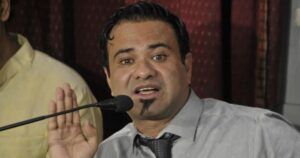 Briefly while deducing into what exactly lead to detention of Dr. Khan and the invocation of NSA against him, we see that, he was initially arrested for a speech he made against CAA-NRC-NPRon 12th December, 2019 in Aligarh Muslim University. This arrest takes place after lapse of more than 45 days of the said speech made, on 29th January 2020, alleging that it amounted to offence under section 153A, 153B, 109, 505(2) IPC. However, the Chief Judicial Magistrate, Aligarh was pleased grant to him bail on 10th February, 2020, but irrespective of the order granting him bail and a direction to release him, the Superintendent, Mathura District Jail, failed to comply with the order and refused to release Dr. Khan, therefore, a second order dated 12th February, 2020 was sent from the Magistrate to release him forthwith.
Briefly while deducing into what exactly lead to detention of Dr. Khan and the invocation of NSA against him, we see that, he was initially arrested for a speech he made against CAA-NRC-NPRon 12th December, 2019 in Aligarh Muslim University. This arrest takes place after lapse of more than 45 days of the said speech made, on 29th January 2020, alleging that it amounted to offence under section 153A, 153B, 109, 505(2) IPC. However, the Chief Judicial Magistrate, Aligarh was pleased grant to him bail on 10th February, 2020, but irrespective of the order granting him bail and a direction to release him, the Superintendent, Mathura District Jail, failed to comply with the order and refused to release Dr. Khan, therefore, a second order dated 12th February, 2020 was sent from the Magistrate to release him forthwith.
Here it is important to note that till this episode, the Magistrate as well as the DIG, do not have any kind apprehension that Dr. Khan might be a threat to the national security. It is only after passing of the release order dated 12th February,2020, i.e. after 3 days of illegally being detained in Mathura Jail, the DIG/Senior Superintendent of Police, Aligarh, relying upon the speech he made in Aligarh Muslim University, make a request to the District Magistrate to detain Dr. Khan, and therefore in compliance with this request the Magistrate decides to invoke section 3 of NSA and detain him giving a reason that it is important to prevent him from engaging in activities that are prejudicial to the maintenance of public order. The same order of detention was served upon to Dr. Khan, while he was in jail, along with the grounds for his detention and the supporting material, which included a mere CD.
On 6th May, 2020, the U.P. Government invoked powers under the same draconian legislation, sub-Section (1) of Section 12 of the National Security Act, 1980, extending the term of detention for a period of six months from the date of detention i.e. 13th February, 2020, and on expiry of 6 months, through order dated 4th August, 2020, detention was extended for three more months.
In the entire judgment of the Allahabad High Court, directing release of Dr. Khan, the Court was furious against the actions of the Magistrate and the DIG/Senior Superintendent of Police, Aligarh. The Court meticulously analyzed the entire speech made by Dr. Khan and came to conclusion that the speech was certainly opposing the policies of the government, but that nowhere reflects the requirement of detention and a complete reading of the speech does not disclose any effort on part of Dr. Khan to promote hatred or violence, instead his speech calls for national integrity and unity among the citizens and deprecates any kind of violence.
The Court further observed that in order to enable Dr. Khan to oppose his detention under the NSA, sufficient material should be supplied for reason of his preventive detention as provided under Article 22 (5) of the Indian Constitution, however, only a CD was given to him without any device being made available to know the contains of it or a transcript of the details in the CD, in order for Dr. Khan to go through it and file his objections. Considering this action of the UP government and Aligarh police officials, the Court held that not only his detention was illegal, but the extension of it was also illegal and violated Article 21 and Article 22 of the Indian Constitution, therefore directed for his immediate release.
It is important to note that the power to preventively detain a person has its roots in the principle of “subjective satisfaction” of the detaining authority, which has been incorporated in Article 22 (7) of the Constitution, empowering the Parliament to make a legislation to preventively detain any person for more than 3 months. With rise in arbitrary invocation of preventive detention laws, the time has come to review Article 22 (7) of Constitution.
Freedom Granted to Students From the Clutches of UAPA
Similarly, after nearly 10 months of being in jail, on 9th September 2020, a Special Court for National Investigating Agency (NIA) Trials, Kochi granted bail to two students, Allan Shuhaib (20) and Thwaha Fasal (24), student of law and journalism, respectively, who were charged under another draconian law, section 38 and 39 of Unlawful Activities Prevention Act, 1967 (UAPA), alleging them to be associated with a terrorist organization and supporting it with the intention to further its activities.

The accused students were politically active who were associated with the CPI (Marxist), and were taking part in several protests and programs, as in furtherance of the same they possessed certain notices, pamphlets, banners relating to the “burning social and political issues” such as calling for implementation of Gadgil Committee report for the protection of Western Ghats, condemnation of encounter killings of Maoists, protests against police atrocities, abrogation of J&K special status etc.
However, observing that mere possession of these documents not being enough to be prosecuted under UAPA, it was held that this evidence might suggest that the students had leaning towards Maoist ideology, but that in no way can be concluded that they were promoting or facilitation terrorist activities. It was also observed that the NIA during the course of the investigation dropped the charges against them for being members of terrorist organization under section 20 of the UAPA, this showed that there was no evidence to prove that they were members of terrorist’s outfits.
The Court, while rejecting the evidences produced by NIA with regard to the students being involved in protests, observed that the right to protest is a constitutionally guaranteed right and that any protest against policies and decisions of the government, even if it is wrong cause, cannot be termed as sedition or an intentional act to support cession or secession.
Impunity of Police Action and the Agenda to Silence Dissent
While in the above two cases the judiciary has intervened in timely manner and passed decisions condemning the actions of the police in furtherance of protecting the civil liberties of individuals, justice for the 12 and more Human rights activists and intellectuals arrested in connection to the Bhima Koregaon case, along with other Anti-CAA protestors, awaits, who have been falsely implicated for taking part in protests, letters and other incriminating files in the devices that were seized in violation of the procedure. Further, it is also important to note that none of the persons arrested have been made available with any material evidence against them for their detention.
The rise in arbitrary arrests has become common phenomenon in the country. The National Crime Records Bureau (NCRB)data interestingly reveals that there were no crimes registered under the UAPA before 2014, however, the total numbers of cases filed under the UAPA rose from 976 in 2014 to 897 (2015), 922 (2016), 901 (2017), and 1182 (2018), which shows clear agenda of the State suppress dissent.
The rise in the number of the cases under the UAPA and the so called anti-terror laws only shows the impunity of the police in invoking the provisions of draconian legislations without any application of mind. Irrespective of there being several guidelines and judgments of the Courts, the two judgments analyzed above shows that the Police do not care about the rule of law instead their action has only lead to rule by law.
Basawa Prasad is an advocate at the Alternative Law Forum.

















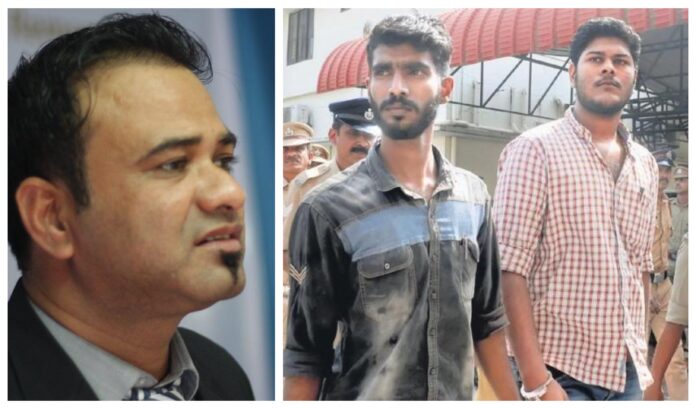
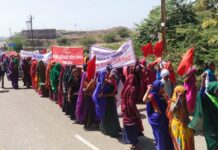
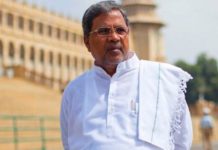




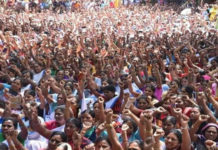
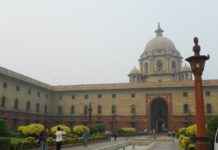
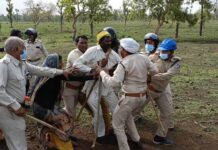



[…] The Two Tales of Protection of Constitutional Guarantee of Civil Liberties […]